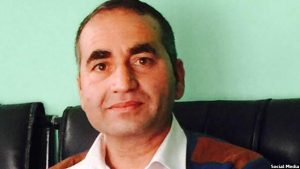Media Officials Criticized the Government for Ignoring the Journalists in Peace Talks.

One of the most important requests from the media and journalists to the government regarding the peace talks was the presence of one of their representatives in the talks as an observer. According to some media officials, their main challenge is that their representative is not present as an observer in Doha, and the talks are being held behind closed doors.
In an interview with the CSHRN, Mr. Mujib Khalwatgar said that although the government had promised to make the details of the negotiations available to the public through the media, it has not happened. “On the day of the Consultative Jirga, the president promised to share peace negotiation’s detail with people through media. Unfortunately, the Afghan government ignored the demand of the media.” Said Mr. Khalwatgar. He added that the government’s approach to defending its position has been weak and has failed to defend values such as freedom of expression.
CSHRN: What has been your assessment of the negotiations so far?
Khalwatgar: One of the issues that became clear at the opening of the talks was that the position of the Taliban has not changed and they still emphasize on the Islamic government. Another issue of concern is that the Taliban still call the Afghan government illegitimate and do not recognize it. These cases show that if the negotiations do not fail, their success will be very time consuming, an almost impossible to undertake?. Also, the government team negotiate from a weak position with the Taliban.
CSHRN: What exactly do you mean by weak position?
Khalwatgar: the government team is implicitly pleading to the Taliban as if they need them to achieve peace. This complicates the situation.
CSHRN: What effect will the low presence of women on the negotiating team have on women’s rights issues?
Khalwatgar: In peace talks, I think the number of women is less than twenty percent, which can both physically undermine the position of women in the negotiations and, given the Taliban ‘s view of women, weaken the position of defending women’ s rights. Other team members (men) may also conclude that it is better to talk about the government’s system, rather than women.
Mr. Khaloutgar adds that even if the women of the team consistently and persistently defend the values, in the end, according to the principle of democracy, voting is used and they lose due to their small number. For this reason, he believes, the presence of more women in the team could have led to a greater focus on women’s rights.
CSHRN: How has security concerns impacted the activities of female journalists?
Khalutgar: Unfortunately, the number of female journalists is declining and not solely for security concerns. In Panjshir province, for example, there are no female media workers, while Panjshir is one of the safest provinces in the country. This shows that cultural problems also play a role.
According to Mr. Khalutgar, no female journalists work in Nuristan, Uruzgan, Zabul, Panjshir, Maidan Wardak, Paktika and Paktia provinces.
CSHRN: Given all that you have mentioned so far, how do you assess the position of female journalists in the government after the peace talks? Will they be able to operate?
Khalwatgar: It is true that we do not see any change in the Taliban’s view, but they are not in the same position they were in during their rule in the past. While the Afghan government has not shown a strong presence in the talks, the Taliban’s willingness to negotiate also means that they are going through their hardest days. Their position has changed and they cannot restrict women, or shut the media down, but limitations are possible. The reason for this change in the Taliban’s position is the experience of freedom of expression, the growth of civil society institutions in the country, and the awakening of the people.
According to Mr. Khalwatgar, in the event of a split in power, human rights be respected in areas where the government is present. However, it will be less respected in the areas controlled by the Taliban.